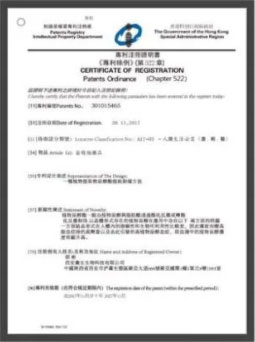
- +86-13363869198
- weimiaohb@126.com

Nov . 30, 2024 00:54 Back to list
Exploring Key Pharmaceutical Intermediates in Drug Development and Manufacturing Processes
The Role of Pharmaceutical Intermediates in Drug Development
Pharmaceutical intermediates are critical compounds in the drug development process, serving as building blocks in the synthesis of active pharmaceutical ingredients (APIs). They play a pivotal role in the pharmaceutical industry, enabling the efficient and cost-effective production of medicines that are essential for improving health outcomes worldwide.
Understanding Pharmaceutical Intermediates
Pharmaceutical intermediates are defined as compounds that are produced during the synthetic pathway of drug manufacturing. They are not the final therapeutic products but are fundamental in the multi-step synthesis of APIs. This category encompasses a broad range of organic and inorganic molecules, each synthesizing through various chemical reactions that may involve different reagents and conditions.
The complexity of many APIs often necessitates multiple intermediate steps, which can result in a chain of intermediates. Each intermediate must be carefully characterized and purified to ensure the safety, efficacy, and quality of the final drug product. For instance, producing a complex antibiotic may require dozens of intermediate compounds, each contributing to the overall structure and activity of the final molecule.
Importance in Drug Development
Pharmaceutical intermediates are indispensable in the research and development (R&D) stages of drug formulation. Their role extends beyond just being a synthesis option; they also influence the pharmacodynamics, pharmacokinetics, and overall therapeutic properties of the treatment.
1. Cost-Effectiveness The use of pharmaceutical intermediates allows for more streamlined production processes, reducing the costs associated with drug manufacturing. By optimizing synthetic routes and enhancing yields at various production stages, pharmaceutical companies can significantly lower the price of medications, making them more accessible to patients.
pharmaceutical intermediates

2. Regulatory Compliance High purity and quality standards govern the production of pharmaceutical intermediates. Strict regulatory frameworks exist, such as Good Manufacturing Practices (GMP), ensuring that every intermediate used in the synthesis of final products meets safety and efficacy requirements. This oversight is vital for building trust and ensuring patient safety, as impurities in intermediates can lead to harmful side effects in the final drug product.
3. Innovation The quest for novel therapeutic compounds relies heavily on the development of innovative intermediates. As researchers explore new chemical spaces and reactions, new intermediates can lead to the discovery of groundbreaking drugs that address unmet medical needs. This continuous innovation is essential in the fast-evolving pharmaceutical landscape, where new diseases and resistant pathogens emerge.
Challenges in Pharmaceutical Intermediates
Despite their importance, the production of pharmaceutical intermediates is fraught with challenges. Synthesizing complex intermediates often requires advanced technical expertise, specialized equipment, and stringent quality control measures. Additionally, the scale-up from laboratory to industrial production can introduce variability that affects the final product's quality.
Environmental sustainability is also a growing concern; many synthetic routes produce hazardous waste that must be managed carefully. The pharmaceutical industry is increasingly exploring green chemistry practices to minimize environmental impact and create more sustainable intermediate production processes.
Conclusion
In summary, pharmaceutical intermediates are essential to the drug development process, enabling the synthesis of APIs while ensuring compliance with safety and quality regulations. Their significant advantages in terms of cost-effectiveness and innovation are counterbalanced by the challenges faced in their production. As the pharmaceutical industry continues to advance, a focus on developing more efficient and sustainable methods for producing intermediates will be crucial for creating the next generation of life-saving medications. By investing in research and technology, the pharmaceutical sector can harness the potential of intermediates and enhance the overall drug development pipeline, ultimately benefiting global health.
-
GHRP-2 (158861 67 7) Peptides for Fat & Muscle Gain
NewsAug.06,2025
-
GS-441524 for White Liquid Factories: Boost Efficiency & Purity
NewsAug.04,2025
-
Premium Pharma Intermediates | AI-Optimized Synthesis
NewsAug.03,2025
-
GS-441524 White Liquid Production for Factories | AI-Optimized
NewsAug.02,2025
-
AI-Optimized CAS: 79099-07-3 Factories for High Yield
NewsAug.01,2025
-
Pharmaceutical Intermediates - AI-Optimized Synthesis & Purity
NewsJul.31,2025